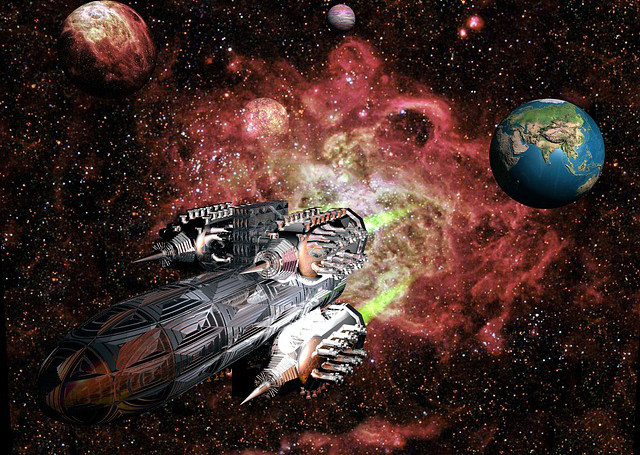 Science fiction has thrilled readers for thousands of years, beginning with the Sumerian Epic of Gilgamesh, written around two thousand years, BC. It became an identifiable genre by the late 17th and early 18th century as the science revolution and major discoveries in astronomy, physics and mathematics fired imaginations and opened minds to endless possibilities. Its versatility made it a favorite medium for a number of contemporary writers, including Frank Stockton, George Orwell, Frank Herbert, Isaac Asimov and of course the one who is considered the granddaddy of modern science fiction novels; Jules Verne.
Science fiction has thrilled readers for thousands of years, beginning with the Sumerian Epic of Gilgamesh, written around two thousand years, BC. It became an identifiable genre by the late 17th and early 18th century as the science revolution and major discoveries in astronomy, physics and mathematics fired imaginations and opened minds to endless possibilities. Its versatility made it a favorite medium for a number of contemporary writers, including Frank Stockton, George Orwell, Frank Herbert, Isaac Asimov and of course the one who is considered the granddaddy of modern science fiction novels; Jules Verne.
In the 1950’s, television began exploring space with an assortment of rocket launching heroes, including Johnny Jupiter, Flash Gordon and Space Patrol. While aimed at youthful viewers, it didn’t take long for producers to realize that science fiction could also reach an adult audience.
15) Alien Nation
Voted by TV Guide as one of sixty television shows that were cancelled too soon, Alien Nation presents a curious mix of drama, suspense and comedy. Premiering in 1988, the setting is the near future. The plot entails a group of aliens who are stranded on earth when their spaceship crashes. It wrestles with multi-cultural issues such as gender roles, racism, religion, and bigotry. While the show was immensely popular, it ran for only one season, due to financial set-backs. Four years later, under the management of Fox, the story of Alien Nations picked back up with five original, made for television movies.
14) Buck Rogers
Although it aired for only two seasons, Buck Rogers is a classic among science fiction story lines. The favorite sci-fi hero was first introduced by Phillip Francis Nowlan in 1928 for radio, comic books and novellas. The futuristic plot involves an astronaut who becomes frozen in space for 500 years and is rescued through cybernetics technology. He tries to fit into this radically changed world pulling itself up by the bootstraps after a nuclear explosion, although he doesn’t always do it successfully. His value as a pilot and astronaut quickly grows as he joins with Earth Defense to keep the world from being destroyed again.
Comic books dominate the science fiction theme with super-heroes who were generally made, not born. Superman’s alien origins grant him exceptional powers on earth. Batman’s access to state of the arts technology allows him to keep a step ahead of super-villains. Other super heroes are the result of laboratory accidents or intentional chemical moderation’s for a stronger, more invincible human being. Although the movies cashed in on big profits for every super-hero release, television stumbled along clumsily with youth oriented plots until the slick sophistication of Agents of S.H.I.E.L.D. With clean, clear graphics, a supra-modern setting and advanced technology, Agents of S.H.I.E.L.D creates a believable story line for the fussiest of Marvel sci-fi aficionados.
12) Firefly
Everyone loves a good buccaneer story, but those tales are usually reserved for ships at sea. Firefly brings a scrappy cast to commandeer the buccaneers of space. Introduced in 2002, it aired only eleven episodes, despite its instant success. Fighting for the wrong side of a civil war leaves our heroes struggling along the fringes of society, out of luck, but still trying to make a living. While cut short before the plot was allowed to deepen, it still won an Emmy award for Outstanding Special Effects, inspired the movie, Serenity, and developed a Firefly franchise that included comic books and a video role playing game.
11) Twelve Monkeys
Time travel is always an irresistible science fiction theme, but everyone knows that if you travel back in time, you change the future. This cautionary advice was lost on Sam Beckett, in Quantum Leap, who created a popular, feel-good, mainstream show, but didn’t really impress hard wired science fiction fans. In 2015, IMBd found a solution; a post-apocalyptic world that desperately strives to correct the mistakes that sent them into the stone-age. Based on the movie “Twelve Monkeys”, it brings time travel into a crushing dimension where time is no longer relevant.
10) Stargate Atlantis
The movie, Stargate, left its audience with so much hunger for the worlds that lay just beyond a portal discovered in Egypt’s pyramids, that it prompted a flurry of made for television series, including Stargate Universe, Stargate Infinity and Stargate SG-1. The most popular series, however, was Stargate Atlantis. Set in a water world, with a technology built a million years ago, the travelers through space battle with an ancient enemy of the early founders in this fast-paced action series that ties Stargate history together and keeps viewers on the edges of their seats.
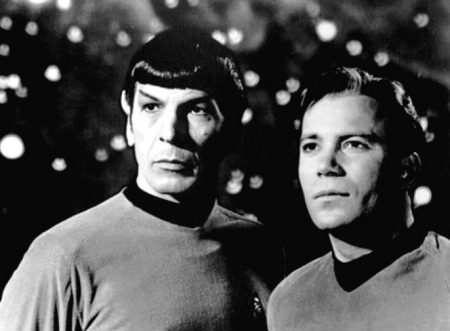 9) Star Trek the Original Series
9) Star Trek the Original Series
Producers were unaware at the time that Gene Roddenberry was about to make history with his 1964 pilot episode of Star Trek. “The Cage” did not receive the exciting results they wanted, but in an unusual move, NBC decided to pay for another pilot, “Where No Man has Gone Before”. Scrapping the entire cast except Leonard Nimoy, who played the Vulcan we’ve all come to know and love, the series took an unusual step from the usual men in space theme. A science ship, the crew is dedicated to exploring new life and new civilizations. Their mission is guided by non-interference in developing worlds. Not only did Roddenberry veer from the typical space venturing theme by bringing in questions of morality and ethics, he remained true to the spirit of science fiction. He researched his futuristic technology under the advice and guidance of NAS. reflects changing social attitudes. Carefully woven into the futuristic theme were Roddenberry’s views of social/economic policies and gender equality. His vision reflected the changing times. While women were just beginning to flex their muscles in the work place, he rocked television world with a black woman communications officer.
8) Farscape
In 1999, Nine Network introduced a cast of alien characters, all escaped prisoners of the military-oriented Peace Keepers, and threw into the mix, a human trying to get back home. While using a Lost in Space theme, it’s a far cry from a children’s show, with amazingly charismatic aliens who build their own fan bases whether they are blue, monochrome or have tentacles. Pulled from the network after the fourth season, leaving the show on a cliff-hanger, Farscape wrapped up their plot with a three hour mini-series, with Farscape, the Peace Keepers War. A new Farscape has been rumored to be developing for addicted fans, but so far, it’s still in the planning stages.
7) Dr. Who
Space and time gather together in the longest running science fiction shows to ever hit television. First launched in 1963, the BBC series ran for twenty-six years, then re-launched again in 2006. The show combines the comical with adventure and drama as a humanoid space lord travels through time in a sentient ship that appears as a police box until you step inside. Twelve different actors have played the role of Dr. Who, with each transition written into the free-wheeling plot that cheerfully combines visits to strange new worlds, fights alien invasions and travels backwards and forwards into time at a whim, putting his human companions through a tail spin.
6) Star Trek Voyager
Following Gene Roddenberry’s vision, Rick Berman, Michael Piller and Jeri Tayler put together the Voyager script with not only gender equality in mind, but with a strong woman captain whose authority is respected without question, as well as some very capable secondary characters, whose femininity is never in question, but who have some independent ideas of their own. First aired on UPN, it was the network’s second longest running show. The seven seasons run through a tight plot line that includes both a holographic doctor and a rescued Borg examining their humanity, while the ship devices a number of ways for taking a short cut home.
5) Battle Star Galactica
Battle Star Galactica battled every inch of the way for its popularity. Enthusiastically embraced in 1979, the show still failed to fulfill the expectancy of its sponsors. It tried again in 1980, with the Colonial fleet moving to Earth to protect it from the Cylons, but the low-budget series failed once again, primarily due to poor timing. Several more attempts were made to bring this cult-driven series to the forefront, and in 2004, UK’s Sky Television took off with a sophisticated set, and a very twisted plot that blurs the lines between good and evil and questions the very substance of humanity.
4) X-Files
The timing was perfect. In 1993, the air was ripe with rumors concerning government conspiracies to hide and research alien technologies. X-Files had to happen, but in order for it to balance perfectly, it needed a skeptic and a believer. While some of the plots felt a little too bizarre for words, Fox Mulder and Agent Scully carried if off as the experienced agent who lost his sister to an alien encounter versus the cool analyst who relies on scientific evidence. The show lasted nine seasons and is scheduled to be revived this year.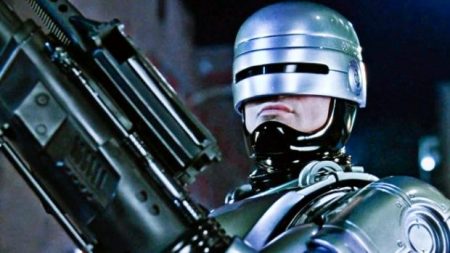
3) Babylon 5
There are many elements to a good science fiction plot. It can be an adventure, a love story, a mystery, a battle, and usually has all these elements rolled into one. The ultimate sci-fi, however, doesn’t just deal with future technology or alien invasions. It deals with the human condition. The plot for Babylon 5 was a tightly woven story of a five mile long space station, hosting a human military, a number of alien ambassadors, registered telepaths, an inter-species society and a down-under whose last best hope ended at Babylon. Mix it up with politics and religion, and you have a story that slowly peels away in layers, revealing the complexities of very human personalities. The remarkably polished series received a number of awards, including two consecutive Hugo’s for best dramatic presentation. Although it hasn’t appeared on American television since 2003, it continues to be shown internationally.
2) Star Trek Generations
Picking up where the original Star Trek left off, with slick, state-of-the-arts graphics, Gene Roddenberry’s Generations moves seventy years into the future, with Captain Kirk, a legend, and the Klingon battles far behind. The 1987 – 1994 series leaves audiences breathless with time warps, time travelers, alternative dimensions, and the omniscient Q. Add to the pot, an android who struggles to find his emotional center, an empathic counselor and a formidable new enemy; the Collective Borg. In pure Roddenberry style, Generations continues to embrace a Utopian future, where good character trumps social status and the definition of sentience stretches to include some very amazing life forms.
1) Twilight Zone
Twilight Zone is the Ray Bradbury of made for television science fiction. Aired from 1959-1964, it was Rod Serling’s brain child. Following the tradition of earlier sci-fi shows, such as Tales of Tomorrow and Science Fiction Theater, the show is made up of independent stories that fill a variety of genres, including psychological thrillers, psychological horror, fantasy, suspense and science fiction. The show was meant to thrill and chill you, but it also brought up deeply disturbing moral issues, with answers that lay only in the twilight zone.
About the Author: Karla Fetrow is the author of the science fiction novel, The Icelandic Accord, a story set in a post-apocalyptic future that measures the rights of the majority against the rights of the individual.

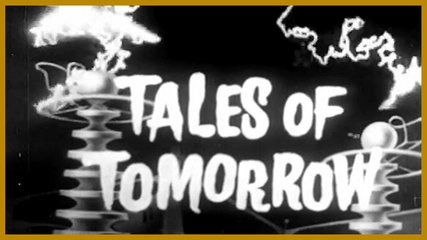
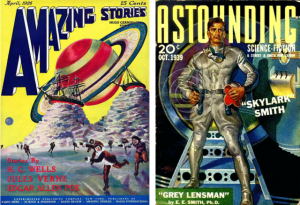
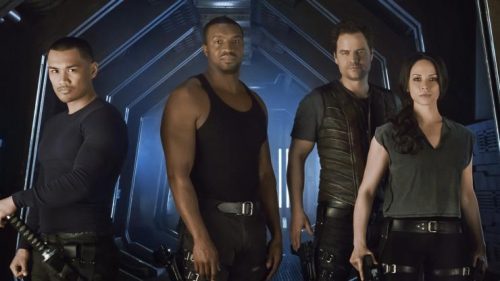
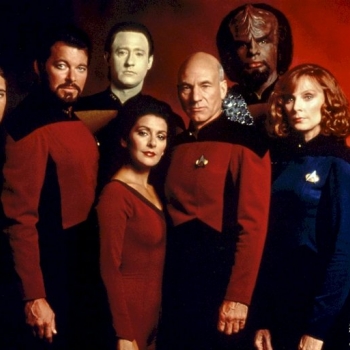
I have watched a couple episodes of Black Mirror and do like it a lot. I probably should have made it a “twenties” list because there were several shows I knocked out of my list to keep it down to fifteen.
[…] The Fifteen Most Memorable Science Fiction Television Series – While aimed at youthful viewers, it didn’t take long for producers to realize that science fiction could also reach an adult audience … made for television movies. 14) Buck Rogers Although … […]
Twelve Monkeys and Alien Nation i love to watch These Series ever and Ever.well you establish a More Remarkably List Of Science Fiction Series
I think Star Trek should be no 1. It may not “boldly go where no man has gone before,” but “Star Trek Generations” has enough verve, imagination and familiarity to satisfy three decades’ worth of Trekkers raised on several incarnations of the television skein. The first bigscreen outing for the “Next Generation” crew should soar at the box office and handsomely revive the theatrical franchise much in the way that the reinvented series blasted off with fans old and new. Expect a smooth flight into early 1995 with solid prospects overseas.
I will rate best 5 sci-fi movies as
Blade Runner
Star Wars Trilogy IV-VI (1977-83)
Alien
The Matrix
2001: A Space Odyssey